Is Africa ready for the Fourth Industrial Revolution? Experts answer that question during Northeastern Global Leadership Summit in Ghana
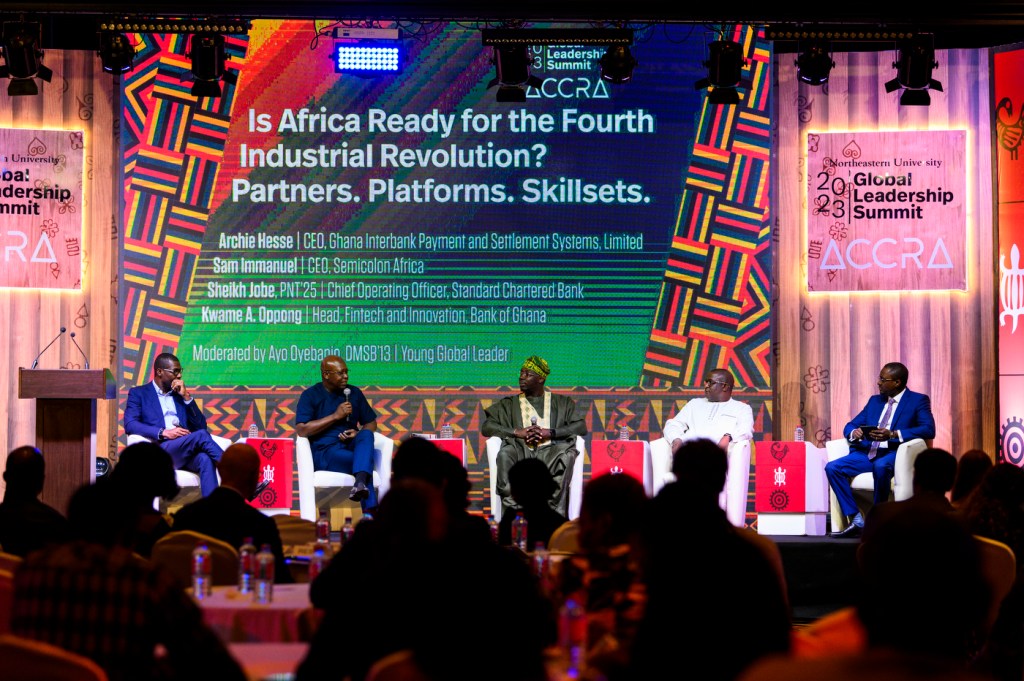
ACCRA, Ghana—Africa has the potential to drive global innovation and transformation, experts at Northeastern’s Global Leadership Summit said, but it needs to find solutions to infrastructure challenges, develop talent with quality digital skills and boost digital literacy overall.
A panel of banking and private sector leaders discussed Africa’s readiness for the Fourth Industrial Revolution during the summit held last week in Accra, Ghana. Young Global Leader Ayo Oyebanjo, a 2013 Northeastern graduate and assistant manager of the operations’ directorate at the Central Bank of Nigeria, moderated the discussion.
The concept of the Fourth Industrial Revolution was first introduced in 2016 to describe an unprecedented transformation that the global community would undergo in the 21st century. Driven largely by the convergence of physical, biological and digital innovations, the Fourth Industrial Revolution will disrupt industries, change the way companies do business, demand more transparency and efficiency of governments, and transform people’s understanding of their identities, according to Klaus Schwab, founder and executive chairman of the World Economic Forum.
Africa and Ghana have already had to leapfrog and come up with local solutions to the continent-specific challenges, experts agreed.
For example, 15 years ago only about 20% of the population had access to banking, said Archie Hesse, chief executive officer of Ghana Interbank Payment and Settlement Systems Ltd., a subsidiary of the Bank of Ghana. Ghana didn’t have enough landlines and all proceeds in the informal sector were in cash.
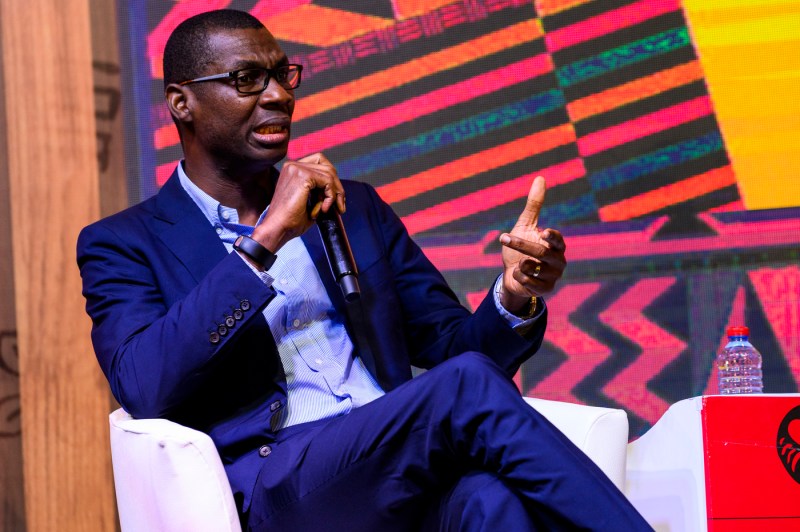
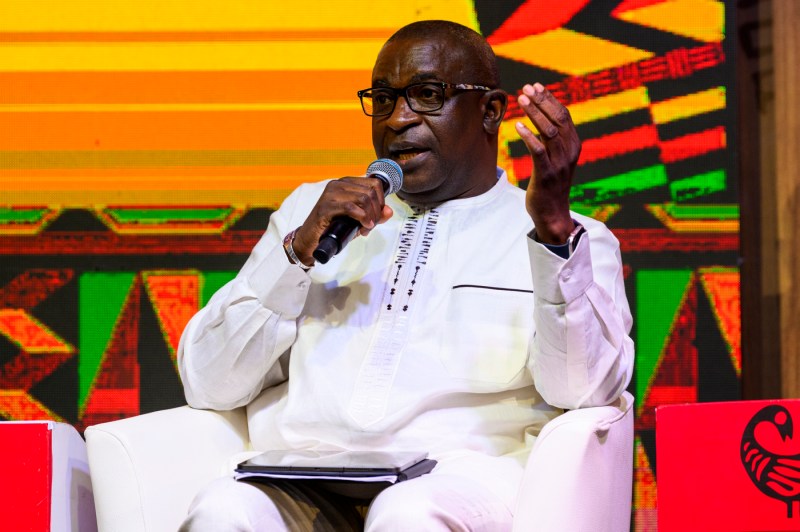
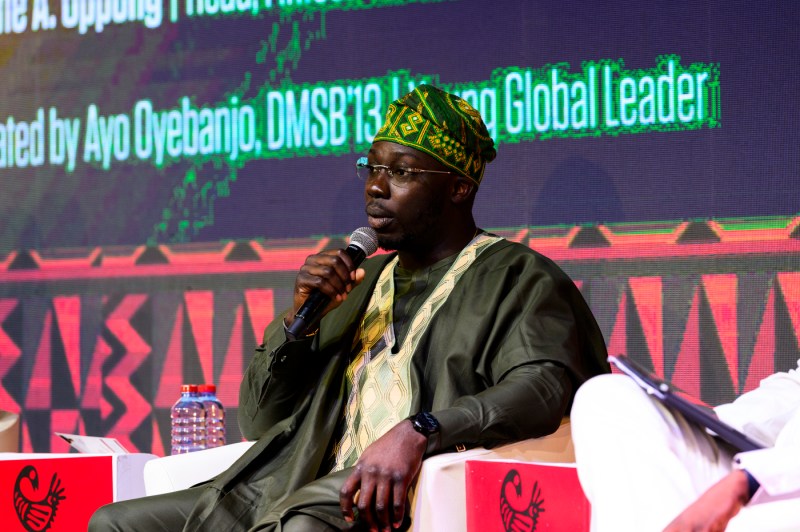
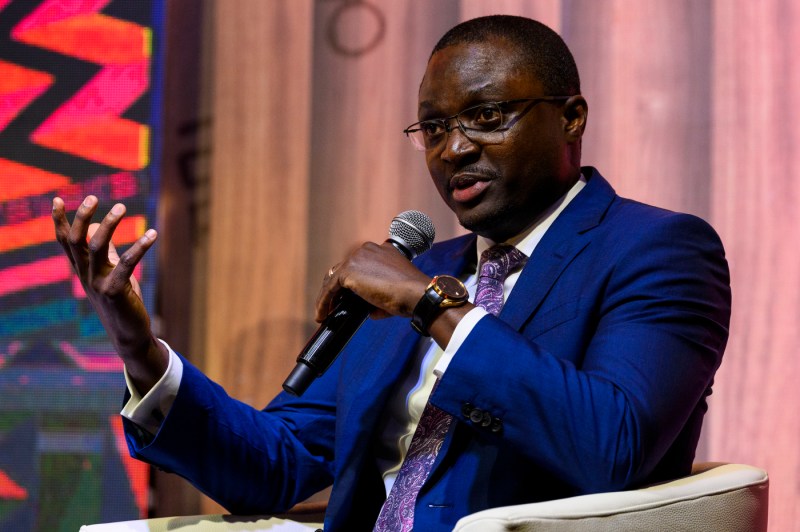
But with the invention of mobile money in Kenya in 2007, which allowed owners of cell phones to send money and make payments, Ghana adopted the Branchless Banking Guidelines in 2009. The number of people with access to banking rose to about 70% of the population, Hesse said.
Banks are now able to assess mobile money transactions and offer Ghanaians loans based on the deadline transactional patterns that they see.
“We’ve managed to interconnect these two platforms such that both the bank and the bank’s customer are able to pay each other,” Hesse said.
The Internet has already improved Africans’ access to education, financial sector and health sector, he said. Africa will be able to keep up with the Fourth Industrial Revolution and its key ingredients such as artificial intelligence, big data and cloud computing once the internet is available everywhere on the continent.
African countries and cities are all at different levels of readiness for the Fourth Industrial Revolution, said Sheikh Jobe, CEO of the Standard Chartered Bank and father of a Northeastern student. He agreed that nobody can escape the Fourth Industrial Revolution.
“It offers massive benefits in creating value across different generations,” Jobe said.
To ensure equitable distribution of the benefits, Jobe said, critical stakeholders need to make a concerted effort to solve infrastructural challenges, like adding mobile towers and providing digital access in the most remote parts of African communities.
By 2050, the African population will be around 2.5 billion, and a large portion of it will be young people who have the capacity to be able to drive a lot of the innovation and transformation that the continent needs, said Kwame A. Oppong, head of Fintech and Innovation in the Bank of Ghana. Regulators and policy makers need to decide how they are going to guide the whole transition to the new digital economy purposefully, putting consumers and human beings at the center of it.
“There is no monopoly on knowledge, information and intelligence,” Oppong said.
“We must recognize that whatever investment that we are going to make, none of it is going to be as critical, as crucial as our investment in human capital, because every other resource is heavily dependent on that human capital,” said Sam Immanuel, CEO of a Nigeria-based social enterprise Semicolon Africa.
Not everybody needs to become a software engineer, he said, but moving into the Fourth Industrial Revolution, everybody needs to learn how to tech-enable themselves, their businesses and professions.

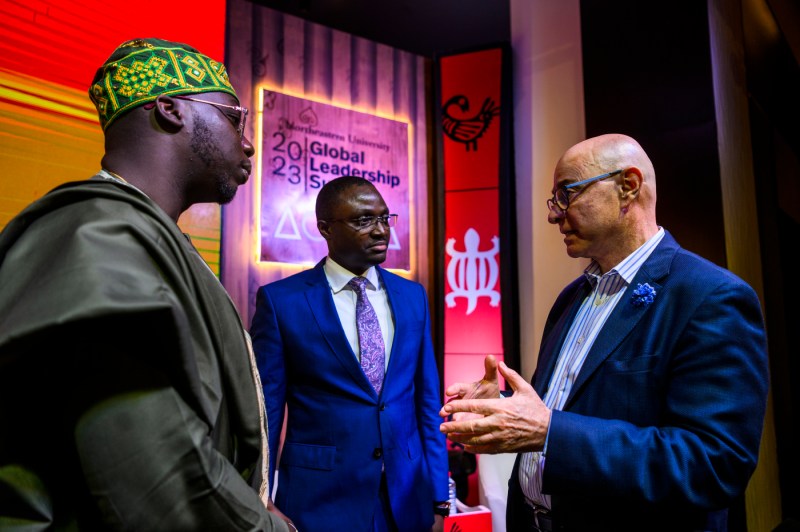
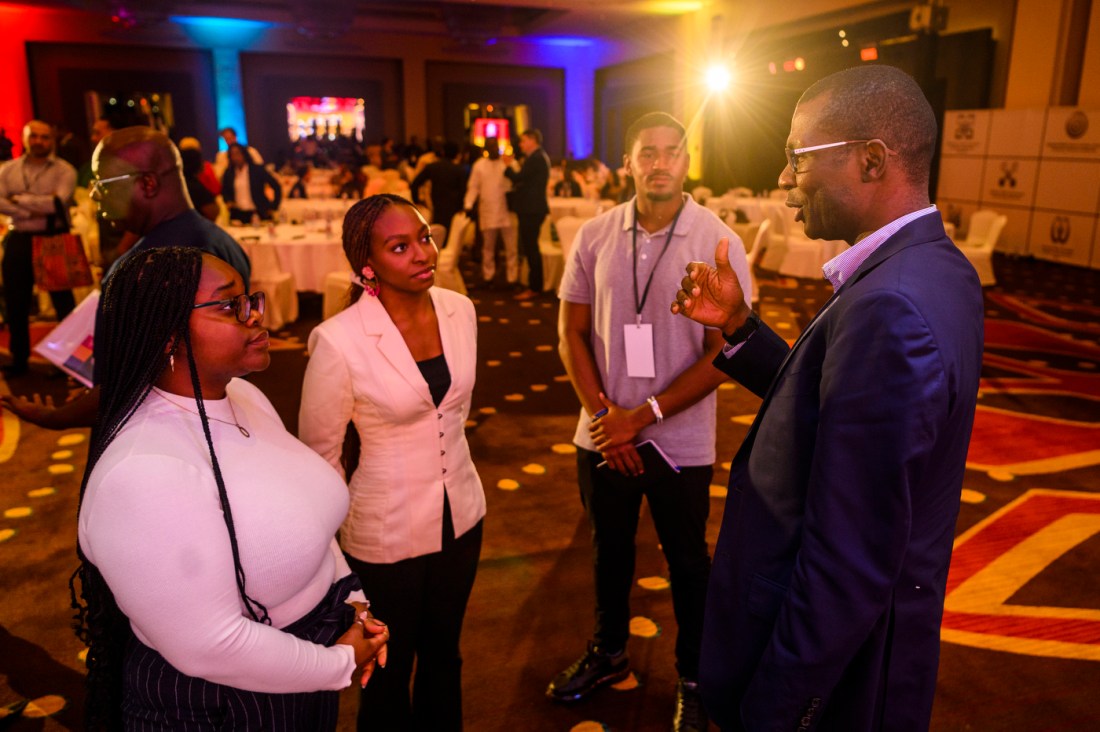
Many young people across Africa are unemployed, while companies are looking for talent that will help them achieve their digital transformation objectives. Semicolon trains new specialists coming out of universities or young unemployed people to acquire digital skills.
Quality and quantity of digital skills, availability and accessibility of these skills are essential to prepare Africans to participate in the Fourth Industrial Revolution, said Immanuel.
The Fourth Industrial Revolution requires Ghana to foster digital literacy in general, Jobe said. Ghana set a target of making 10 million people across the country, or about one-third of its population, digitally literate by 2030.
In Ghana, about 70% of the population is literate, Oppong said, but many more people are numerate, meaning that they at least understand numbers. Such people in rural areas are able to use unstructured supplementary service data—a protocol that allows them to send text messages made up of the characters that are available on a mobile phone—to make payments.
“By typing a star, one, zero, hashtag, this and that, they are very comfortable with those numbers. It just tells us the opportunity we have because of the numeracy rates,” Oppong said. “And that’s why, we wanted to also mention, we have an obligation to leapfrog.”
The Central Bank of Ghana has worked with the federal government on financial inclusion and development strategy to create digital financial services policy to transform the society and address digital payment opportunities, Oppong said.
Ghana has implemented a universal QR code that is used instead of the points of sale, which can be very expensive. In addition, any bank account owner in Ghana can send funds to any other bank instantly, within seconds, Hesse said.
“We’re also working on a central bank digital currency effort,” Oppong said. “This is the E-Cedi.”
The Central Bank of Ghana is exploring an offline type of digital currency as well that won’t need internet connectivity but still allow transactions digitally, he said.
Multiple African countries adopted the Data Protection and Safety Acts which help reassure those people who are skeptical about digital technologies.
Alena Kuzub is a Northeastern Global News reporter. Email her at a.kuzub@northeastern.edu. Follow her on Twitter @AlenaKuzub.






